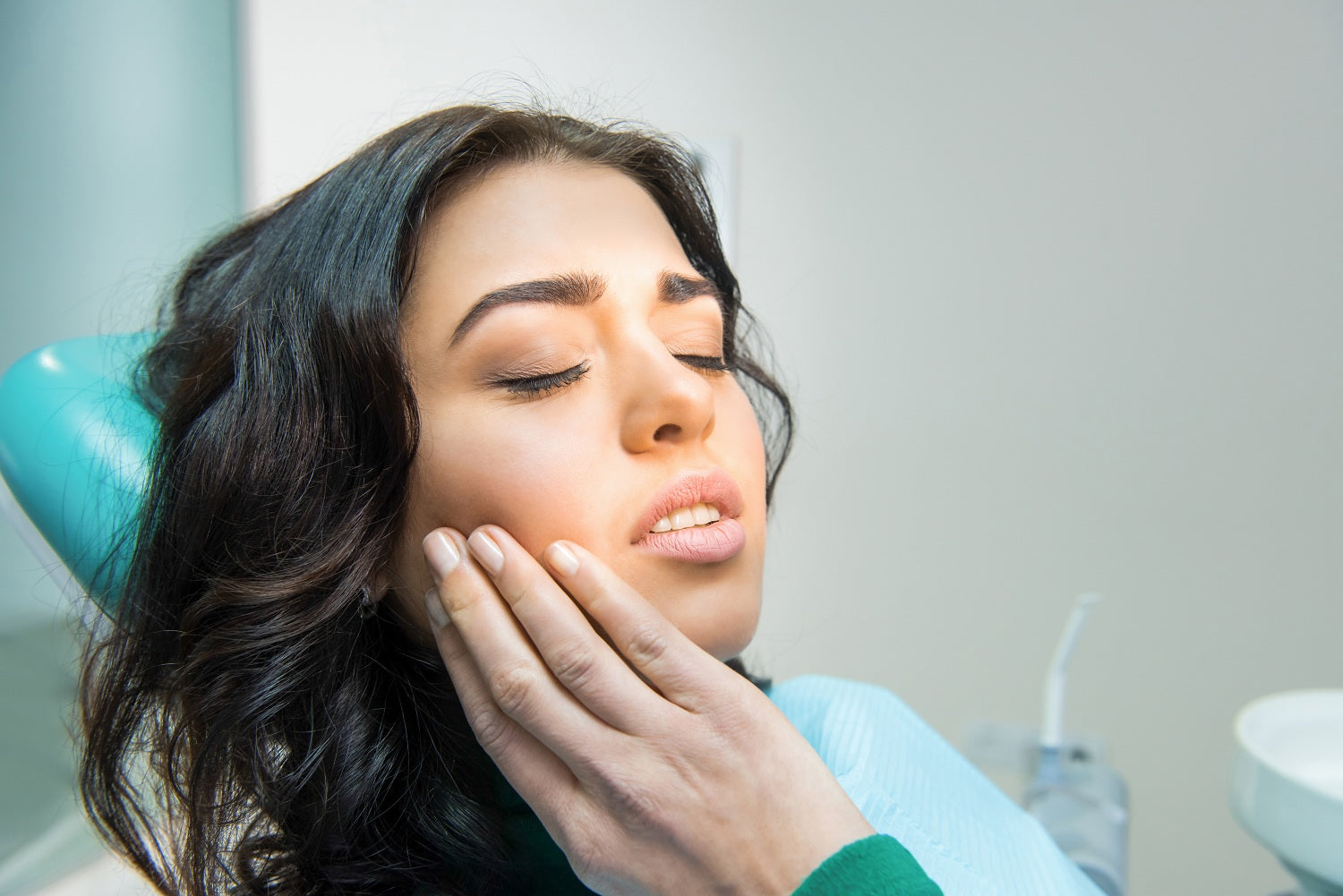- Phone: 1.404.373.4030
- Opening Hours: Mon-Fri 9AM-5PM Eastern

DISCLOSURE: Noelle Copeland RDH is an Oral Care Specialist and Dental Consultant who provides content for Brilliant Oral Care and Baby Buddy.
Tooth sensitivity is the number one complaint of people worldwide regularly. Most people experience tooth sensitivity in response to a stimulant, like cold drinks or food, biting or chewing, and even just breathing in air. If you struggle with sensitive teeth keep reading for tips and tricks on how to handle this very common complaint.
One of the first places I start when discussing sensitivity with my patients is the cause or culprit of their sensitive teeth. Consider if you have any of the following.
Poor Oral Hygiene
When you have poor oral hygiene, the plaque and bacteria that are left undisturbed in the mouth can cause inflammation, demineralization, and erosion; all factors that can make teeth and gums feel sensitive.
Cavities/Decay
Erosion/Wear
Trauma/Cracks/Breaks
Infections
Increase Oral Hygiene
Oral care should be the number one, top priority on everyone’s list when it comes to dealing with sensitive teeth. This not only includes the oral care routine performed at home but also encompasses the professional oral care that’s regularly needed through professional dental services like cleanings, exams, and diagnostic x rays.
Oral hygiene at home should include the following:
Professional oral care includes the following:
Fluoride/Xylitol/Sealants
In the absence of a fluorosis diagnosis, fluoride can be applied to adult teeth to help with sensitivity. This needs to be done professionally in a dental office either by the dentist or a dental hygienist. This is called a fluoride varnish and is often done after a regular yearly professional cleaning appointment. Another option is xylitol-containing dental products like toothpaste, mouthwash, mouth gels, and even gums and mints that contain xylitol.
Dental professionals will often encourage patients to place molar sealants on the back chewing teeth, especially baby teeth but quite often adult teeth can benefit from this as well. A sealant is a flowable composite material that is cured into the pits and grooves of molar teeth. Sealing the pits and grooves keeps them airtight and sealed off from the ever-changing environment of the mouth, preventing sticky, gummy, and chewy foods from being retained in the spaces and decaying.
Restorations
Sensitive teeth happen sometimes, and most of the time, there is a cause and a treatment for it. If you are still unsure about your sensitive teeth then be sure to schedule a visit to your dentist as soon as possible for a comprehensive evaluation.
If you want to try the best toothbrush for sensitive gums which just happens to also be the softest toothbrush for sensitive gums look no further than Brilliant Oral Care. https://brilliantoralcare.com
Be sure to check out our selection of toothbrushes for individuals with special needs. This includes our silicone toothbrushes that make oral care easy to start. Our DINOSAUR, PENGUIN, and DUCK character sonic toothbrushes make oral care fun. And our special soft toothbrush with our most extensive bristle count has the softest texture brush that we offer.
© 2021 Compac Industries. All rights reserved. This article provides information about “oral health topics” as expressed through the perspective and experience of the author. The information provided does not substitute professional advice or counsel, including diagnosing or treating any condition. Always seek the advice of your dentist or another qualified healthcare provider with any questions you may have regarding a medical condition, an oral condition, an illness, or treatment of any listed or unlisted situation above. By using this site, you signify your assent to our Terms and Conditions. If you do not agree to all of these Terms and Conditions, do not use this site.
Noelle Copeland RDH is an Oral Care Specialist and Dental Consultant who provides content for Brilliant Oral Care and Baby Buddy.


DISCLOSURE: Noelle Copeland RDH is an Oral Care Specialist and Dental Consultant who provides content

DISCLOSURE: Noelle Copeland RDH is an Oral Care Specialist and Dental Consultant who provides content

We believe that all people are fearfully and wonderfully made and designed in the womb for a grand purpose.
Useful Links
Copyright © 2023 Compac Industries | All Rights Reserved.